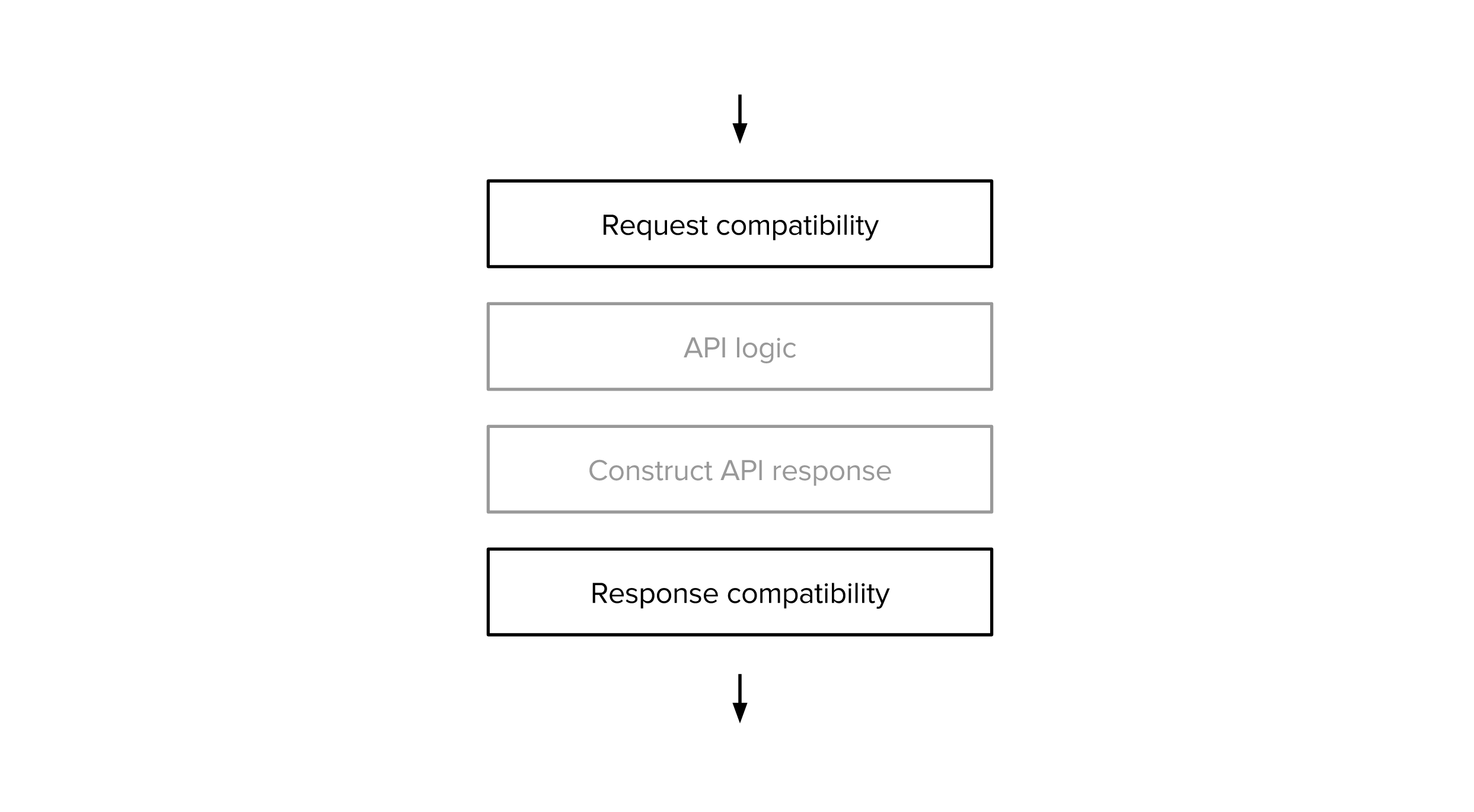This plug helps to manage multiple API versions based on request and response gateways. This is an awesome practice to hide your backward compatibility. It allows to have your code in a latest possible version, without duplicating controllers or models. We use it in production.
Inspired by Stripe API. Read more at MOVE FAST, DON'T BREAK YOUR API or API versioning.
- reduce changes required to support multiple API versions;
- provide a way to test and schedule API version releases;
- to have minimum dependencies and low performance hit;
- to be flexible enough for most of projects to adopt it.
Multiverse allows you to use a custom adapter which can, for eg.:
- store consumer version upon his first request and re-use it as default each time consumer is using your API, eliminating need of passing version headers for them (a.k.a. version pinning). Change this version when consumer has explicitly set it;
- use other than ISO date version types, eg. incremental counters (
v1,v2); - handle malformed versions by responding with JSON errors.
Default adapter works with ISO-8601 date from x-api-version header (configurable). For malformed versions it would log a warning and fallback to the default date (configured via :default_version setting):
:first- apply all gates by default. This option is useful when you integrate Multiverse in existing project and API consumers are not ready to accept latest changes by default;:latest- user current date as default version. This option is useful when there are no legacy clients or there was no breaking changes before those clients started to send API version.
ISO date adapter allows API clients to use channel name instead of date:
latestchannel would fallback to the current date;edgechannel would disable all changes altogether.
Channels allow you to plan version releases upfront and test them without affecting users,
just set future date for a change and pass it explicitly or use edge channel to test latest
application version.
The package (take look at hex.pm) can be installed as:
- Add
multiverseto your list of dependencies inmix.exs:
def deps do
[{:multiverse, "~> 2.0.0"}]
end- Make sure that
multiverseis available at runtime in your production:
def application do
[applications: [:multiverse]]
end- Insert this plug into your API pipeline (in your
router.ex):
pipeline :api do
plug :accepts, ["json"]
plug :put_secure_browser_headers
plug Multiverse, default_version: :latest
end- Define module that handles change
defmodule AccountTypeChange do
@behaviour Multiverse.Change
def handle_request(%Plug.Conn{} = conn) do
# Mutate your request here
IO.inspect "AccountTypeChange.handle_request applied to request"
conn
end
def handle_response(%Plug.Conn{} = conn) do
# Mutate your response here
IO.inspect "AccountTypeChange.handle_response applied to response"
conn
end
end- Enable the change:
pipeline :api do
plug :accepts, ["json"]
plug :put_secure_browser_headers
plug Multiverse,
default_version: :latest,
gates: %{
~D[2016-07-21] => [AccountTypeChange]
}
end- Send your API requests with
X-API-Versionheader with version lower or equal to2016-07-20.
You can use any version headers by passing option to Multiverse:
pipeline :api do
plug :accepts, ["json"]
plug :put_secure_browser_headers
plug Multiverse,
default_version: :latest,
version_header: "x-my-version-header",
gates: %{
~D[2016-07-21] => [AccountTypeChange]
}
endYou can use your own adapter which implements Multiverse.Adapter behaviour:
pipeline :api do
plug :accepts, ["json"]
plug :put_secure_browser_headers
plug Multiverse,
default_version: :latest,
adapter: MyApp.SmartMultiverseAdapter,
gates: %{
~D[2016-07-21] => [AccountTypeChange]
}
end- Split your tests into versions:
$ ls -l test/acceptance
total 0
drwxr-xr-x 2 andrew staff 68 Aug 1 19:23 AccountTypeChange
drwxr-xr-x 2 andrew staff 68 Aug 1 19:24 OlderChange
- Avoid touching request or response in old tests. Create API gates and matching folder in acceptance tests.
- Store Multiverse configuration in
config.ex:
use Mix.Config
config :my_app, MyApp.Endpoint,
default_version: :latest,
gates: %{
~D[2016-07-21] => [AccountTypeChange]
}plug Multiverse, otp_app: :my_app, endpoint: __MODULE__-
Generate API documentation from changes
@moduledoc's. -
Other awesome stuff. Open an issue and tell me about it! :).
See LICENSE.md.




